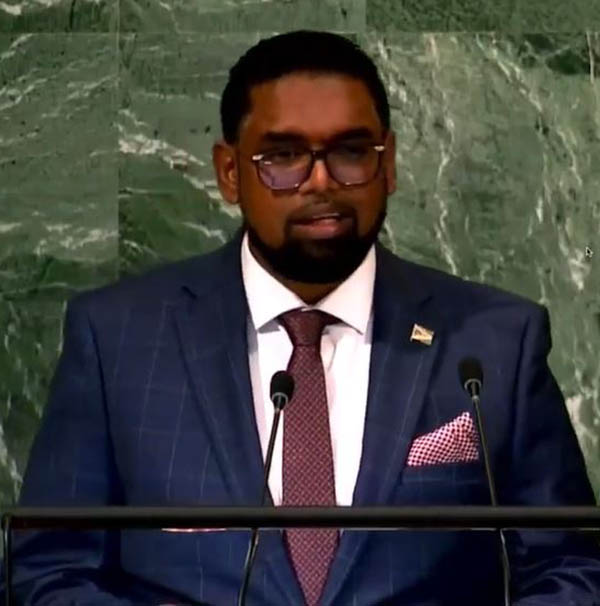Following a denunciation by Venezuela, the Government of Guyana last evening said it stands by President Irfaan Ali’s recent pledge before the United Nations towards pursuing a judicial settlement to resolve the ongoing border controversy between the two countries.
In a statement issued last evening, the Ministry of Foreign Affairs said it took note of a communique issued by the Venezuela on September 30, 2022.
In that communique, Venezuela rejected what it called Guyana’s misrepresentations and manipulations regarding the border controversy in Ali’s speech at the 77th session of the United Nations General Assembly.
It said the speech “disrespects the historical and fair position” of Venezuela on the controversy while accusing Guyana of making “false accusations” since 2015 on the issue.
In response, the Ministry of Foreign Affairs said the Government of Guyana stands by the statement made by Ali before the United Nations General Assembly on September 21, 2022.
“In the matter of Guyana’s sovereignty and territorial integrity, challenged and threatened by Venezuela, as it is, we remain…committed to making the most of every diplomatic tool for the specific settlement of disputes as set out in the Charter of the United Nations.
“In this case, judicial settlement, as determined by the [United Nations] Secretary General himself, the world nations can be assured that Guyana shall remain true to those peaceful processes and deny every effort to depart from them. The International Court of Justice has already affirmed its jurisdiction in the matter,” Ali had told world leaders.
Guyana’s recourse to the International Court of Justice (ICJ) in 2018 followed decades of stalemate in its border controversy with Venezuela. Venezuela is not participating in the process but took part in the case management process.
Venezuela has reiterated its historical position of non-recognition of the jurisdiction of the Court to hear the case and highlighted the validity of the 1966 Geneva Agreement to reach a practical and mutually satisfactory settlement for the parties, through friendly negotiations.
In March of this year, Guyana submitted its Memorial on the Merits of its case – as required by the Court following its decision of 18 December 2020, confirming its jurisdiction to decide the merits of Guyana’s claims.
In June, Venezuela formally submitted its objection to the admissibility of Guyana’s case before the ICJ. While Guyana’s Foreign Affairs Ministry said that the move is aimed at delaying the outcome of the case, it welcomed the participation of Caracas.
“…by its action, the Venezuelan government now joins the judicial process which Guyana had always urged it to do- a step that Guyana welcomes, confident of the validity of its position on the merits of the case,” the Ministry had said then in a statement.






